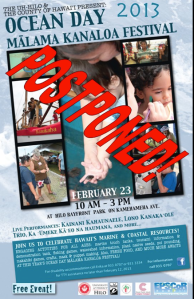We were asked to choose an object from the table (Dr. Joanne Cooper’s mini class) so I chose a wooden elephant similar to this

What: a professional development course that challenges teachers to incorporate culture-based educational (CBE) practices and resources into their standardized curriculum as a way to approach western content through an indigenous lens.
The course immerses teachers in CBE methodologies through the use of resources (i.e. professional readings, moʻolelo), a wide variety of presenters who are language and culture experts, and day trips into KS land holdings guided by kupuna and field scientists from that area. This course also provides practitioners time to transform a unit, demonstrate their lesson on peers, reflect on their use of CBE resources, and give and receive feedback to the community of learners in the course.
When: July 15 – 26, 2013 plus 2 continuity sessions in the fall (TBD by participants), 7:30 am – 4:30 pm at KSH Kula Waena. Get 4 B credits upon completion of the course.
Recommmendation form (from a colleague or supervisor)
For more information, a syllabus, etc., email Cathy.
Alana – awaken in the center
What are the branches that come off of that?Reveals my first blush attempt at what is important:
How am I an insider and an outsider?
Defining qualitative research
Researcher is the key instrument
Involves an emerging approach
Involves sense-making interpretation
(Journal topic – role of the researcher – my genealogy as a researcher)

I am the queen of free PD and webinars are a great way to participate in one hour PD.
What: Adopting a Blended Learning Strategy webinar on February 26, 2PM ET (9 am Hawaiʻi) Blended learning, the teaching practice that combines both face-to-face and online learning, offers a model of instruction to engage students in and out of the classroom. It has proven highly effective in helping schools and districts address the challenges of student achievement, limited resources, and the expectations of 21st century learners.
Why:
Too much rain in Hilo – the kind that is thick with water (you know what I mean if you’re from Hilo)
What: Mālama Kanaloa Festival at Hilo Bayfront Park on February 23, 10 am – 3 pm
Activities include
Why: Enjoy the day, bring your ohana and learn together at this free event.
What: Lab School @Punahou – a cohort group of educators examining transformative educational practices through technology, inquiry and creativity.
July 8-12, 2013, 2013 Monday-Friday $200
July 29 – August 2, 2013 Monday-Friday $200
July 29 – August 2, 2013 Wednesday – Friday $200
Why: Punahou School is in its 10th year of 1:1 technology integration, so take advantage of the ways that they have tried to support their own teachers in technology integration in the classroom.
For more information or to get their brochure forwarded to you, email me at caikeda@ksbe.edu.